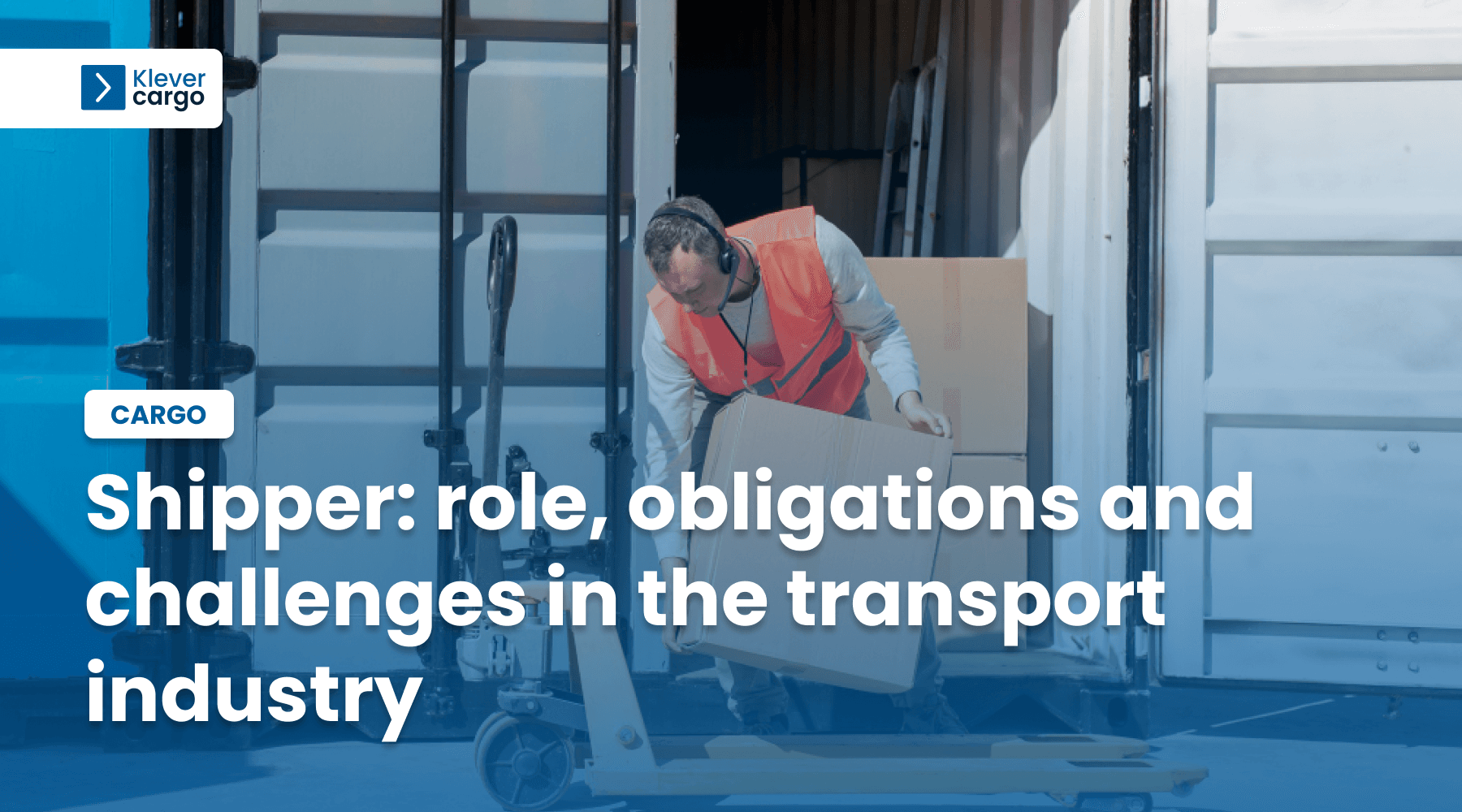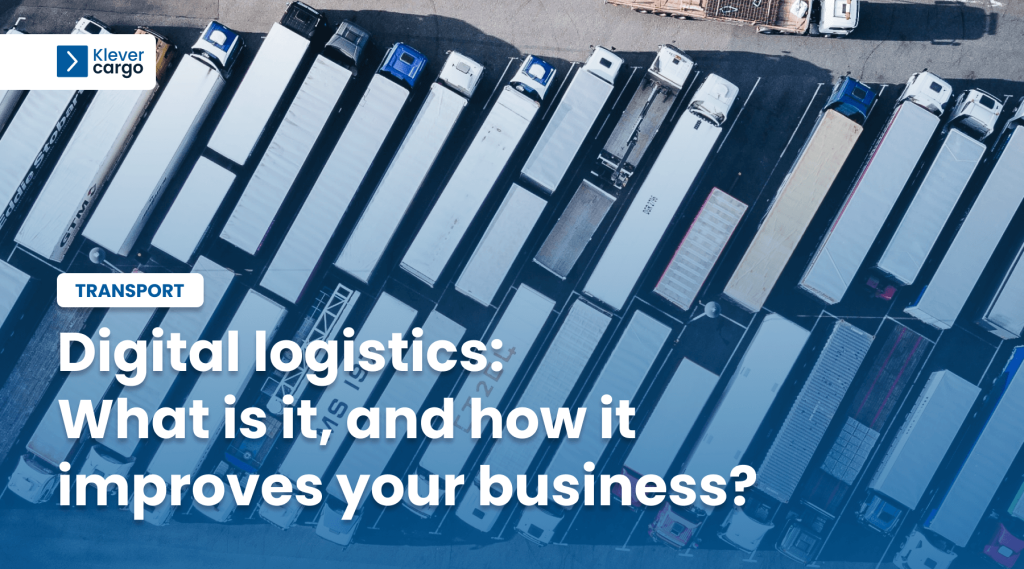A shipper is a person or company that sends products via transportation. Their role in the transportation industry is to ensure that products move from one location to another safely and on time.
Shippers are the ones who own or produce the goods. Therefore, they’re responsible for choosing the most efficient method to transport their goods. In addition, they must keep cost-effectiveness in mind.
They also negotiate rates and contracts with carriers and logistics providers. Furthermore, shippers monitor the movement of their goods from point A to point B.
The transportation industry couldn’t exist without them as they have a central role in the transportation industry.
Who is called a shipper?

A shipper participates in the transportation chain and collaborates with other members. They all work together to deliver the products successfully.
There are several different roles in the transportation industry, including:
Shippers
They are the ones who send goods to be transported from one place to another.
Freight Carriers
They are responsible for transporting the goods and ensuring their safe delivery. Shippers rely on carriers to transport their goods. On the other hand, carriers depend on shippers to provide them with cargo to transport.
Brokers
They act as middlemen between shippers and carriers. They help them to match them up and arrange transportation.
Freight forwarders
They handle the logistics of transporting goods, including arranging transportation and managing paperwork. Shippers benefit from freight forwarders to manage the logistics of transporting their goods. Freight forwarders benefit from shippers by providing transportation, warehousing, and customs clearance services.
Dispatchers
Dispatchers coordinate the movement of goods and communicate with drivers and carriers to ensure timely delivery. Shippers rely on dispatchers to coordinate the movement of goods. Dispatchers select the carriers and schedule pickup and delivery times.
Each role is vital in the transportation industry. They all work together to ensure that goods are transported efficiently.
What is the role of a shipper?

Shippers play a crucial role in getting goods from the producers to the consumers. They are responsible for packaging and preparing the goods for transportation. Furthermore, they arrange for the shipping of the goods.
They are selecting the most efficient and cost-effective mode of transportation. Some loads can be transported via trucks, while others move with rails or air cargo. There is quite some paperwork involved in shipping, including CMR and insurance forms. Shippers must take care of that paperwork.
Preparing the goods for transport
Preparing goods for transport involves packaging, labelling, and loading goods into transport vehicles. Shippers also need to measure the weight and size of the goods carefully. Different products require different types of trucks or different transportation methods.
Arranging for transport
After preparing and measuring the goods, the next step is to find the appropriate transportation method. Shippers will contact carriers or freight brokers to get quotes and negotiate the price for the services. Once they find the best carrier, the shipper provides them with shipment details. Those details include pickup and delivery locations and schedule for the pickup and delivery times. Once everything is set, it’s time to handle the paperwork.
Providing documentation
The documentation includes bills of lading, customs declarations, invoices, and packing lists. The documents provide information about the goods, their destination, and their value. They also serve as proof of ownership. Of course, that proof helps to ensure that the goods are legally and safely transported. Therefore, shippers need to ensure that all required documentation is accurate and complete. Additionally, they have to submit it on time to avoid delays or penalties.
Monitoring the shipment
Monitoring the shipment means keeping track of the goods from pickup to delivery. To do so, shippers use technologies like GPS tracking and sensors. Those tools gather real-time information about the cargo’s location, condition, and status. Shippers use this information to ensure their goods are efficiently transported.
They can also communicate with carriers to solve any issues or make adjustments to the shipping plan if needed. Shippers can track the shipment to ensure their goods arrive on time and in good condition. Naturally, those are essential for customer satisfaction and business success.
Legal and financial obligations of shipper

Shippers have legal and financial responsibilities when transporting goods. Legally, they are responsible for ensuring their shipments comply with all laws and regulations. Those obligations refer to safety, security, and customs.
They can also be accountable for any damage or if something gets lost during transportation. However, they may not be held accountable if they arrange a different contract with the carrier.
Financially, shippers must pay for the transportation of their goods. This includes:
- negotiating prices with carriers;
- insurance coverage;
- paying for any required fees or taxes.
To fulfill these obligations, shippers must carefully manage the transportation of their goods. They also need to work closely with carriers to ensure everything goes smoothly.
Shippers’ challenges

Shippers face various challenges in the transportation of goods. These challenges can include transportation capacity, managing costs, and security challenges. Shippers must also consider international freight.
When transporting goods internationally, there are different customs procedures and documentation requirements. As a result, shippers must stay current on industry trends and laws to overcome these challenges.
Technology and data can be a great way to optimise their work. Furthermore, they must maintain good relationships with carriers and logistics providers.
Transportation capacity
Transportation capacity can be a challenge for shippers for a few reasons. First, their capacities can be limited. A shortage of drivers or equipment can cause delays in their delivery. This can make it hard for shippers to find carriers to transport their goods on time.
Transportation capacity can also vary due to changes in demand. The market won’t always stay the same. The need for certain products can increase or decrease, leading to too little or too much of a particular product.
Another thing that can cause capacity issues is difficulty finding a load. For example, a company may have a truck in a specific location, and they’ll have a hard time moving it.
However, that can be easily solved when you access a versatile load board like KleverCargo. There, you’ll be able to find thousands of available loads. Then, you can place bids, cover the documentation, and have everything centralised on a single platform.
Things like natural disasters or political problems can also influence transportation capacity. Because of those, transporting goods to certain countries will sometimes be impossible. These factors can make it challenging for shippers to handle the transportation capacity.
Cost management
Cost management is another challenge that shippers face. Transportation costs can be unpredictable since many things can change rapidly. Fuel prices are one example where higher prices can drastically reduce the profits of a business. Other cost management challenges would be labour costs and carrier capacity. This can make it difficult for shippers to predict the needed budget for transportation expenses.
Negotiating the price is a standard part of the transport industry. Shippers can have lower negotiation power with carriers. This especially happens when there is high demand for transportation capacity. This can make it hard for shippers to get reasonable rates and terms.
Furthermore, there can be additional costs in transportation that they should have calculated.
Some of those are:
- fees for customs clearance;
- storage;
- insurance.
These can add additional expenses to freight. Finally, some unexpected factors can happen that slow down the process. For example, there can be weather-related delays or an equipment malfunction. When those things happen, shippers will need to invest in fixing the broken equipment part. Also, they’ll have to find other transportation options to get the job done.
To effectively manage costs, shippers need to control transportation expenses. To do so, they must negotiate good rates with carriers. In addition, they can use strategies like mode shifting to optimise their shipping operations.
Security and risk management
Security and risk management can be challenging for shippers due to many factors. There is always a risk of theft or damage to goods during transportation. This is especially common for high-value or high-risk cargo.
To avoid those risks, they must include protective methods. Great options are available, like secure packaging, GPS tracking, and cargo insurance.
Next, there are certain security requirements that shippers must resolve. Screening for forbidden items and customs regulations are some of them. They can get penalties and face delays if they don’t comply with these rules.
Shippers also need to be prepared for unexpected complications. For example, natural disasters, political problems, or cyber-attacks can influence their business. They should also have prepared plans to react if unexpected problems happen.
Important link of the transport industry

Shipper is a key part of the transportation chain. As such, shipper face a lot of responsibilities and challenges. However, with proper management, overcoming those challenges and making a profit is possible.
Also, their jobs became much more manageable by substituting old-school methods with digital tools like GPS, sensors, and data analytics. And when you add a safe load board for finding reliable transporters, you get the whole package. Register on the KleverCargo platform and do business safely, plus minimise empty runs and complicated paperwork.


